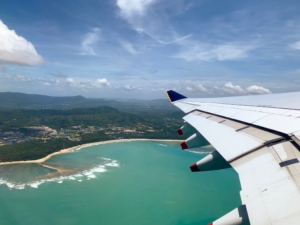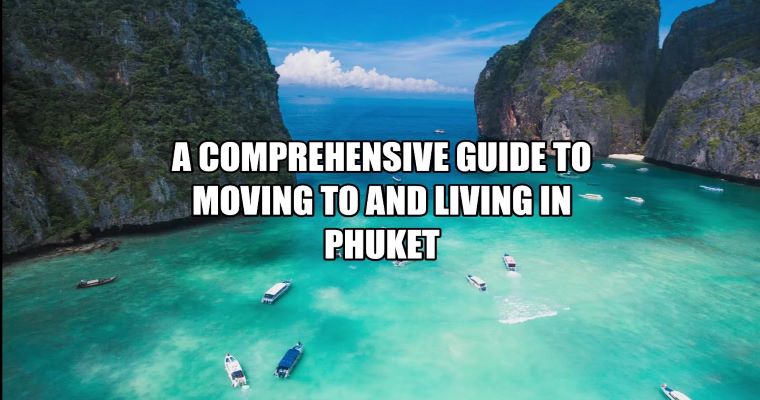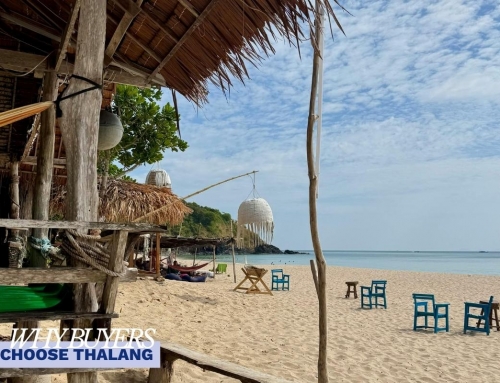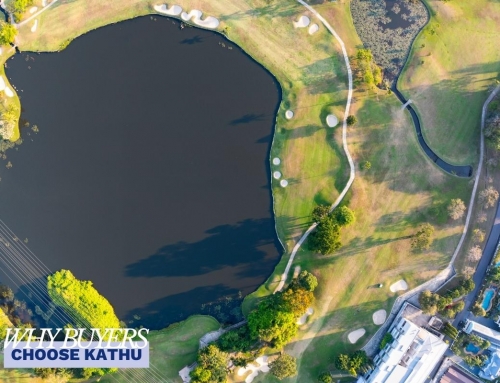Life in Phuket as an expat offers a unique balance of tropical beauty, modern convenience, and a thriving international community. Thousands of foreign residents have chosen to make the island home, drawn by the warm climate, relaxed pace of life, and access to global amenities. This guide explains what to expect when living in Phuket, covering cost of living, lifestyle essentials, healthcare, schools, and popular neighbourhoods.
Why So Many Expats Choose Phuket
Thailand’s largest island attracts thousands of new residents each year. The appeal goes far beyond beaches and warm weather.
-
Excellent international hospitals and healthcare
-
Wide range of housing options across different budgets
-
Thriving expat communities in Rawai, Nai Harn, Chalong, Kamala, and Bang Tao
-
International schools with British, American, and IB curriculums
-
Strong digital nomad and entrepreneur scene
-
Direct international flights via Phuket International Airport
Whether you are seeking a family-friendly base, a vibrant social scene, or a quiet retreat close to nature, Phuket provides the infrastructure and community that expats value most.

Cost of Living in Phuket
For expats, the cost of living in Phuket can be surprisingly affordable compared with many Western countries. Essentials such as local food, utilities, and transportation are reasonably priced, while imported goods, international schools, and luxury services carry higher costs.
-
Housing: Monthly rents vary widely by location. Apartments and condos in Patong or Laguna are more expensive than houses in Rawai or Chalong.
-
Utilities: Electricity, water, and internet remain lower than many overseas equivalents, although air-conditioning can add to bills.
-
Food: Street food and local markets offer excellent value, while international restaurants are plentiful but pricier.
Managing expenses depends largely on lifestyle choices, but overall life in Phuket as an expat provides good value for quality of living.
Life in Phuket as an Expat: Healthcare and Medical Facilities
Phuket has some of Thailand’s best hospitals, clinics, and medical facilities, many with English-speaking doctors and internationally trained specialists. Private hospitals such as Bangkok Hospital Phuket and Siriroj International attract patients from across Asia for high-quality treatment.
Routine healthcare is affordable, but expats are advised to carry international or local health insurance to cover emergencies.
Education and International Schools in Phuket
For many families, schools are the number one factor when considering life in Phuket as an expat. The island offers a wide choice of international schools, teaching in English and following globally recognised curriculums.
-
Curriculums available: British (IGCSE, A-Level), American, Canadian, French and International Baccalaureate (IB). Some schools also offer bilingual programmes blending Thai and English.
-
Notable schools:
-
British International School Phuket (BISP) – Long-established, extensive facilities, British and IB curriculums.
-
HeadStart International – Popular mid-priced option with a British curriculum.
-
UWC Thailand – IB-focused with a strong emphasis on sustainability and community values.
-
Kajonkiet International School – Another established option, known for a broad academic offering.
-
-
Fees: Vary significantly depending on the school. Parents should budget for a substantial expense, as international tuition is often the largest part of the family budget in Phuket.
-
Locations: Most schools are located in central and southern Phuket (Chalong, Koh Kaew, Kathu), so many expat families choose to live nearby to reduce commute times.
Education in Phuket is a key draw for families who want to balance tropical living with quality schooling. Parents should research curriculums, fee structures, and campus facilities carefully before making a decision.
Best Areas to Live in Phuket
Different areas of Phuket suit different lifestyles:
-
Rawai and Nai Harn – Popular with long-term expats and families. Quiet neighbourhoods, good villas, close to international schools in Chalong.
-
Laguna and Bang Tao – Luxury living, golf courses, resorts, and branded residences. Favoured by retirees and digital nomads.
-
Patong and Kata – Lively areas with nightlife and entertainment, balanced by access to beaches and conveniences.
-
Chalong – Central, close to schools and marinas, practical for families and professionals.
Choosing where to live is one of the biggest lifestyle decisions when considering life in Phuket as an expat.
Life in Phuket as an Expat: Community and Lifestyle
The expat community in Phuket is diverse, ranging from retirees and families to entrepreneurs and digital nomads. English is widely spoken in popular areas, and many services cater specifically to foreign residents.
Everyday life combines Thai culture with international influences – local temples, street markets, and festivals sit alongside Western-style gyms, co-working hubs, and world-class restaurants.
Getting Around: Cars and Transport
While motorbikes remain the most common form of transport in Phuket, many expat families and retirees prefer the safety and comfort of a car. Having your own vehicle makes island life easier, from school runs and shopping trips to weekend drives along the coast.
Public transport is limited outside of tourist areas, though there are taxis, ride-hailing apps, and local songthaews (shared pick-up trucks) in some parts of the island. For long-term residents, however, owning a car usually offers the greatest flexibility.
Infrastructure and Connectivity
Living in Phuket today means enjoying modern amenities and strong infrastructure:
-
Upgraded road networks and bypasses
-
Expanding Phuket International Airport with more direct long-haul flights
-
Modern shopping malls, golf courses, marinas, and wellness centres
These developments ensure that daily life on the island is convenient, well-connected, and supported by facilities that match international standards.
Working in Phuket as a Digital Nomad
Phuket has become a hub for entrepreneurs, freelancers, and remote workers. With fast internet, co-working spaces, and strong expat networks, it’s possible to combine tropical living with a thriving career.
Visa requirements must always be respected, but the island’s infrastructure and international community make it a practical base for those pursuing location-independent work.
Life in Phuket as an Expat: Summary
Life in Phuket as an expat combines affordability, tropical beauty, and modern infrastructure. From healthcare and education to housing and lifestyle, the island offers everything needed for a comfortable long-term stay. Whether you are a family, retiree, or remote worker, Phuket has a community and neighbourhood to suit your lifestyle.
Related Guides
Thinking about living in Phuket and want clarity on the legal side of property ownership?
Get in Touch | Call Now On: +66 9484 11918





Social Contact